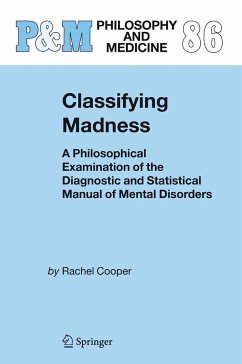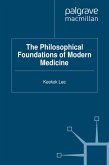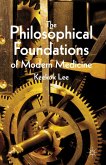This book is about the Diagnostic and Statistical Manual of Mental Disorders, more commonly known as the D.S.M. The D.S.M. is published by the American Psychiatric Association and aims to list and describe all mental disorders. Within its pages can be found diagnostic criteria for types of depression, types of schizophrenia, eating disorders, anxiety disorders, phobias, sleeping disorders, and so on. Also included are less familiar, and more controversial, conditions: Mathematics Disorder, Caffeine Intoxication, Nicotine Dependence, Nightmare Disorder. It must be admitted that the D.S.M. is not an exciting read. Its pages follow a standard format: Each disorder has a numerical code. This is followed by a description of the disorder, which includes information regarding prevalence, course, and differential diagnosis. Finally explicit criteria that patients must meet to receive the diagnosis are listed. These generally include lists of the symptoms that must be present, restrictions as to the length of time that the symptoms must have been troublesome, and clauses that state that the symptoms must not be better accounted for by some other condition.
From the reviews: "Cooper's Classifying Madness is an important text in the context of these recent works and a useful addition to the broader, more interdisciplinary, philosophy of psychiatry literature. ... Its strengths are its straight-forward presentation, clear focus, and sensible reasoning. ... The book will be accessible and of interest to a wide audience of philosophers of science, philosophers of psychiatry, psychiatrists, clinical psychologists, and other researchers interested in issues concerning the classification of mental disorders." (Jonathan Y. Tsou, British Journal for the Philosophy of Science, Vol. 61 (2), June, 2010)








